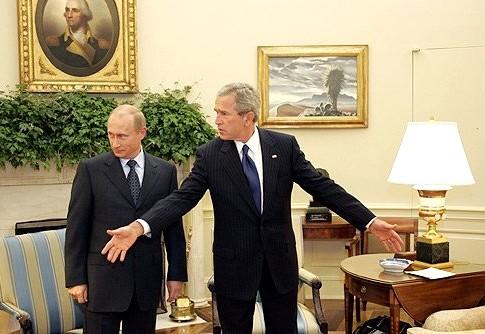Politics
Russia Orders Army Back From Ukraine Border, Easing Tensions
By and- Units to return to bases by May 1; Ukraine welcomes move
- Western leaders had called on Russia to withdraw troops
Russia said it will begin pulling thousands of troops back from areas near the Ukrainian border starting Friday, in a step that could calm strains with the West that have surged in recent weeks.
Ukrainian President Volodymyr Zelenskiy welcomed the move, saying in a tweet it “reduces tension.”
The ruble gained as much as 1.4% against the dollar and the cost of insuring Russian debt against default fell the most in 10 months after the news. The Russian currency had slipped amid fears the conflict could bring new Western sanctions. Ukraine’s hryvnia rose to the highest level since April 14.
Western officials say Russia moved as many as 100,000 troops, as well as tanks, warplanes and other equipment, to areas near the border with Ukraine in recent weeks, the largest such buildup in years. The U.S. and its European allies called on the Kremlin to pull the forces back but Moscow said it’s free to deploy its military wherever needed on its territory.
Underlining the continuing tensions in the relationship, Russian President Vladimir Putin said Thursday he doesn’t want to discuss the conflict in the Donbas region of east Ukraine, with Zelenskiy, telling the Ukrainian leader he should hold talks with the leaders of Russian-backed separatist regions there first.
Accusing Zelenskiy of taking numerous “destructive” steps in the relationship with Russia, Putin said he’s still willing to host the Ukrainian leader for talks on bilateral ties. The Ukrainian leader Tuesday proposed a meeting with Putin in Donbas to reduce tensions.
Kyiv and its western allies blame Moscow for the latest surge in tensions and have dismissed calls for talks with the separatists. The Russian military buildup had raised fears of a renewal of the heavy fighting seen in 2014.
Russian Defense Minister Sergei Shoigu said the military units will return to their bases by May 1.
“The goals of these surprise checks were fulfilled completely. The forces showed their ability to reliably defend the country,” he told commanders during a visit to Crimea Thursday, announcing the end of the operation. “The military activity of NATO in this region has significantly increased,” Shoigu noted, according to a ministry press release.
Flashpoint
Tensions between Ukraine and Russia rise over separatist-controlled areas
Sources: Natural Earth; European Commission
“Moscow thinks that it got its message across,” said Fyodor Lukyanov, head of the Council on Foreign and Defense Policy, which advises the Kremlin. “There’s been some de-escalation and now the confrontation has returned to the political and diplomatic sphere.”
To be sure, there was no immediate sign the withdrawal would take place as announced and Russia has changed plans for deployments on short notice in the past. Adding to the uncertainty, the Defense Ministry said it would leave the tanks and other equipment of one of the major units in the area near the border ahead of exercises planned for the fall.
Amid the crisis, U.S. President Joe Biden called Putin to appeal to the Russian leader to reduce tensions, offering the prospect of a summit meeting later this year, a gesture welcomed in Moscow. And the U.S. reaction to Russia’s announcement was muted on Thursday.
“We’ll be looking for follow-through in terms of what the Russians actually do,” State Department spokesman Ned Price told reporters. Jen Psaki, the White House press secretary, said “We obviously want to de-escalate tensions not only in the relationship, but certainly at the border.”
Russia denied its buildup was a threat to Ukraine but the Kremlin had charged the government in Kyiv with planning an assault on Donbas separatist regions in the east of the country that are backed by Moscow. The Ukrainian government rejected those claims and accused Moscow of planning a military incursion of its own.
Russian navy vessels during drills in Crimea.
Source: Russian Defense Ministry Press Service via AP Photo
As recently as Tuesday, Shoigu had accused Ukraine of seeking to destabilize the Donbas and said the troop buildup was a response to threats from the North Atlantic Treaty Organization. On April 13, he said the exercises would end within two weeks.
Why Russia-Ukraine Tensions Are So Hard to Defuse: QuickTake
On Tuesday, German Chancellor Angela Merkel called the situation “extremely tense and very worrying as a result of the concentration of forces on the Russian side of the Ukrainian border.” She and other western leaders had repeatedly appealed to the Kremlin to de-escalate.
Putin on Wednesday warned the West against crossing Russia’s “red line” but his spokesman Thursday declined to specify where that line lies with regard to Ukraine.
— With assistance by Nick Wadhams, and Justin Sin


Keine Kommentare:
Kommentar veröffentlichen